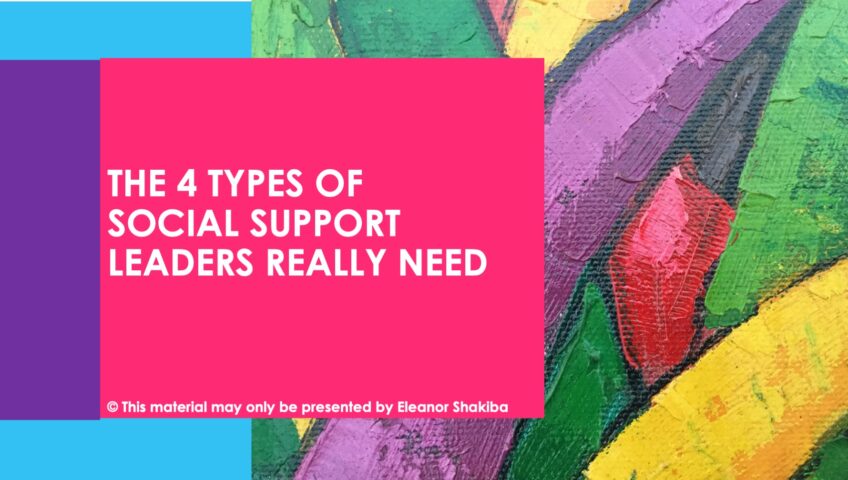Feeling stressed? You may just need someone to talk to. Research suggests that social support is an important factor for minimising the effects of stress. As an added benefit, social support may also improve your physical health. So, what are the types of social support that you need to lead more effectively?
Positive psychology has long stressed the importance of social support for stress relief. It’s an area that’s been widely studied. However, not all types of social support are created equal. An article from Elizabeth Scott, PhD recently explored the different forms of support. The four main types of social support include emotional, informational, tangible, and belonging support.
Emotional support helps affirm your self-worth. When someone lends a shoulder for you to cry on, they’re providing emotional support. Informational support comes from the sharing of advice. When you go to someone for help with a problem, the advice they provide is a form of informational support.
Tangible support is the sharing of resources. In the workplace, you may get tangible support from workers assigned to assist with your task. Belonging social support is the fourth form of support needed to fight loneliness and stress. It is a type of social support that comes from social activities. Spending time with a group of people provides a sense of belonging that can ease stress.
Elizabeth Scott goes on to explain the effects of social support. According to a study from the University of Utah, social support helps lower blood pressure. Another study found that social support is linked to your overall health and well-being. Individuals with strong social support had a 50% increase in survival compared to those who lacked support. Research also indicates that social support may decrease depression and anxiety. It creates a buffer against the effects of stress. You can read the entire article on the benefits of social support here.
Social support is just one solution for combatting stress. Along with increasing your support circle, you may want to try using NLP for better stress management. Neuro-linguistic programming includes exercises that anyone can use. You can learn to alter your negative thoughts and behaviours. Anchoring and cognitive reframing are a couple of NLP techniques that can fight stress.
NLP anchoring is the use of a mental anchor to improve your emotional control. Anchors are positive thoughts. You create anchors by thinking of a memory that brings instant joy to your mind. When emotions start to get the better of you, you can use an anchor to regain control. Reframing helps you change the way you look at certain situations. You can use this technique when dealing with a stressful problem. It involves opening your mind to other possibilities by looking at things from an outside perspective.
If your stress is getting to you, it’s time to try something different. Seeking support from others and building greater resilience and mental stamina can help. Explore effective NLP techniques for stress relief with my one-to-one coaching services and online courses available at https://thinklearnsucceed.com.au/
